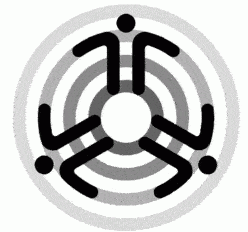
The Telecommunications Authority of Trinidad and Tobago (TATT)’s Discussion Paper on Net Neutrality and OTT Services in Trinidad and Tobago (PDF ; 63 pages ; 1034K) is out for public comments until October 12 2018.
Contents
About Net Neutrality
What is Net Neutrality? From Wikipedia: Net neutrality is the principle that Internet service providers treat all data on the Internet equally, and not discriminate or charge differently by user, content, website, platform, application, type of attached equipment, or method of communication.
About Over the Top Services (OTT)
OTT refers to “services that a customer may use which rides on top of a network to which the customer is connected” (CANTO, 2014) – which covers anything that is sent and received over the Internet from webpages to email to Voice over IP (VoIP) and video chat services (like Skype, Whatsapp, Google Duo), Messaging services (like Whatsapp, Apple iMessage, Google Allo) to video and audio streaming (like YouTube, Netflix, Facebook Video).
About TATT’s discussion paper on net neutrality and OTT Services in Trinidad and Tobago
In TATT’s discussion paper, TATT proposes several guiding principles and policy recommendations for Net Neutrality and OTT Services in Trinidad and Tobago. These proposed principles and recomendations WILL impact current and future Internet users and businesses in Trinidad and Tobago in how we use the Internet. Please therefore read the discussion paper and contribute to the TTCS response to the discussion paper (Google doc, no login needed) before October 12 2018 by following the links below, and read about TATT’s proposed principles and recommendations for Net Neutrality and OTT Services.
Key Documents
- TATT’s Discussion Paper on Net Neutrality and OTT Services in Trinidad and Tobago (PDF ; 63 pages ; 1034K)
- TTCS draft response to Discussion Paper on Net Neutrality and OTT Services in Trinidad and Tobago (Google doc, no account needed to view or comment)
- TTCS, ISOC-TT and IEEE-TT Joint Statement on Digicel Trinidad and Tobago’s ban on VOIP Services (2014)
- TTCS comments on “Towards the Treatment of Over The Top (OTT) services”; policy document submitted to Telecom Authority of Trinidad and Tobago (2015)
TATT proposed Guiding Principles for Net Neturality
Principle 1: Reasonable Traffic Management
- The Authority recognises that well-functioning broadband networks require operators to manage their networks reasonably.
- Traffic management techniques that are reasonable and serve to address specific needs should be allowed.
Principle 2: No Unreasonable Discrimination
- The Authority proposes net neutrality rules that specifically prohibit network operators from intentionally downgrading and/or blocking lawful content, applications and/or services.
- Discriminatory practices may be allowed for societal issues such as: bridging the digital divide, public safety, emergency situations, law enforcement and national security issues, and child pornography.
Principle 3: Encouraging Investment
- Net neutrality policy decisions should ensure that market opportunities and investment prospects are not unduly disrupted.
- Net neutrality policy decisions should encourage a climate of regulatory certainty that incentivises investment, e.g., through sector stability and the expectation of reasonable rates of return on investment opportunities.
Principle 4: Transparency
- Network operators should disclose their network practices inclusive of traffic management practices and application-specific behaviour.
- The disclosure of traffic management information that is commercially sensitive in nature, or which may compromise the security of a network, should be exempted from the principle of transparency.
Principle 5: Promoting Local Innovation and Entrepreneurship
- Any policy framework on net neutrality should be guided by the stimulation of local innovation and entrepreneurship.
TATT’s proposed policy recommendations for net neutrality
On Blocking and Throttling
- An ISP should not prevent (through blocking) end users from freely accessing and/or providing lawful information, content, services and applications.
- Subject to the principle of reasonable traffic management, an ISP should not intentionally restrict, alter, degrade or impair specific content, services or applications.
On Paid Prioritisation and Zero-Rated Pricing
- The Authority proposes penalising harmful and proven offences as opposed to the absolute banning of paid prioritisation and zero-rating practices.
- Each case should be evaluated on its individual merit and regulatory action would only be warranted where there is violation of one or more of the guiding principles.
View / Download
Discussion Paper on Net Neutrality and OTT Services in Trinidad and Tobago
(PDF ; 1034K)
TATT’s proposed regulation of OTT Services
Classification 1: Functionally Equivalent OTT Services
- OTTs which are functionally equivalent to traditional services and use numbering resources to connect to the PSTN [Public Switch Telephone Network] should be regulated in the same manner as traditional telecommunications services.
- Amendments to the Authority’s Authorisation Framework will be required to reflect classification 1 OTT services.
Classification 2: Other OTT Services
- The Authority may consider taking a light-handed regulatory approach to OTT services not requiring numbering or spectrum resources.
- Amendments to the Authority’s Authorisation Framework will be required to reflect classification 2 OTT services.
- General regulatory controls should be applied to these services. These include, inter alia, cybersecurity, data protection, child pornography, intellectual property rights, national security and privacy controls.

